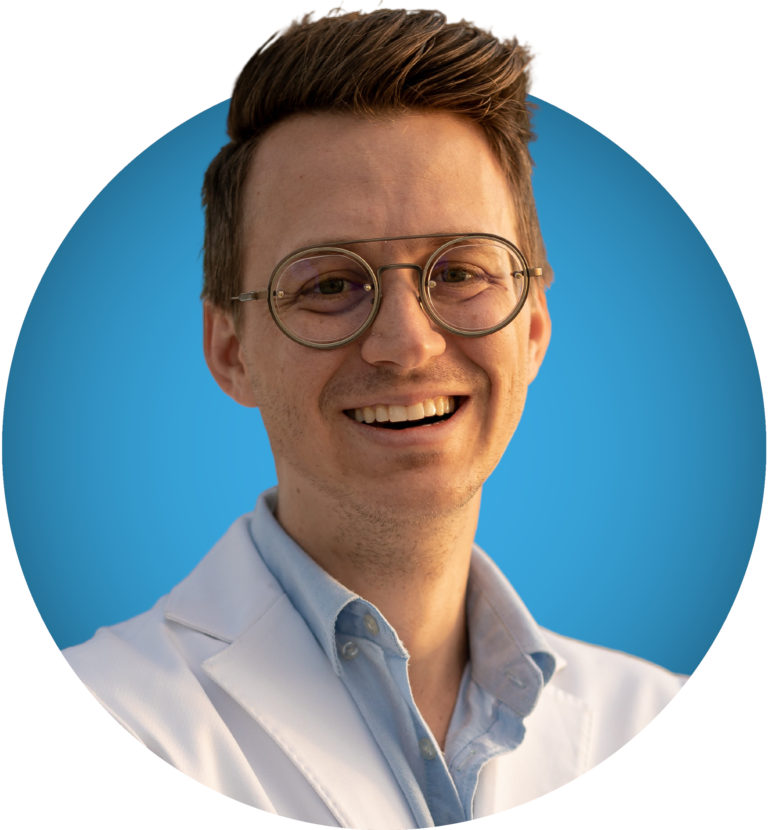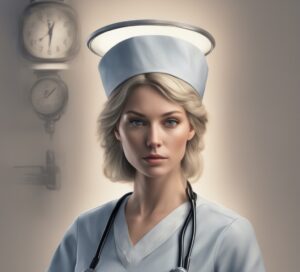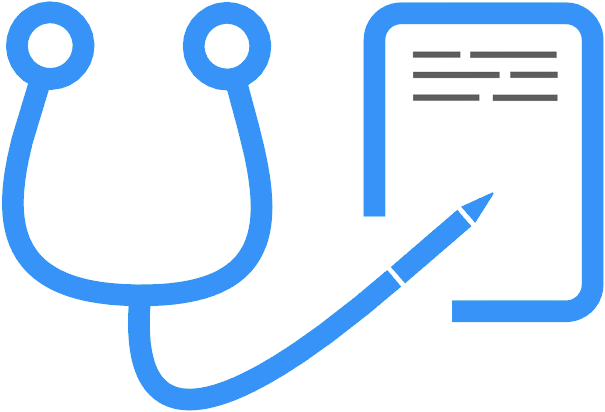
The winding tale that made me come to grips with my seemingly divergent passions and discover how to leverage them in my health career.
Like any child in their formative years, I was often faced with the question, “What do you want to be when you grow up?” Social propriety dictated that I needed to say something, so I always had some answer to placate the examiner.
What I did know was that I was interested in a lot of different things. Hobbies were my hobby. Everything from sleight-of-hand magic to film production to poetry to skateboarding to tight-rope walking – the list goes on. I loved interacting with people, knowing a little about a lot, fixating on complex problems, and pushing myself to become better at things.
Eventually, I hit college age and still didn’t know what I wanted to do. So I chose to be a nurse. Try telling that to a nurse – oh, heads up – they don’t like it.
There’s an archetype for the type of person that becomes a nurse, and I certainly wasn’t it.
My fellow nursing students all had some sob story on why they chose nursing – they were inspired by another nurse who cared for their loved one, they wanted to bring precious babies into the world, or they were incredibly empathetic.

I was told that if I wasn’t incredibly passionate for nursing or if I didn’t feel some sort of divine “calling,” I’d better walk away.
In one sense, I think they were trying to warn me – nursing is hard. And if you don’t have a deep-seated drive for it, you either won’t last or will perform poorly. And performing poorly on patients is of somewhat more concern than performing poorly on a spreadsheet (though I cannot comment on the potential existence of lethal spreadsheets).
Surely, if some vague, ephemeral, and loosely-spiritual emotion were the criteria for donning the white hat, we wouldn’t have any nurses.
When everyone around you is apprehensive, it can make you begin to doubt. But once I started rotations in school, those fears died down. I found I really loved direct patient-facing care and developed a deep heart seeing people who were suffering. But until I actually got to the bedside, all I really knew was that I was dedicated, enjoyed complex, rapidly-changing environments, extremely organized, highly efficient, and, obviously, very humble.
I had a feeling that these traits were just as (if not more) important to patients as ethereal “passion.” I found that my drive came from a deep satisfaction everyday when I walked through the parking lot back to my car.
After that, I got begged for my first hospital job. That’s a longer story with its own lessons that you can find here, but I basically went to my local hospital’s HR about 8 times until they caved and offered me a job. So there I was, working in the hospital – dream come true, right?
Well, kind of.
I was about a year in on a tele/med-surg floor. I was great at my job and patients loved me for always going the extra mile and helping them make sense of being in the hospital (i.e., the most confusing place anyone’s ever slept in).
And for all the talk about the relationship between passion and skills, I ended up loving the patient-provider relationship.
More than that, I genuinely loved how weird the whole thing was. Complete strangers ask you very personal questions. So many providers struck me as odd people – at least a standard deviation moreso than the general public. Hospitals are the penultimate examples of eery liminal spaces, especially at 3 in the morning. Honestly, the whole thing was giving Black Mirror.
But as much as I love surreal television, something started to bother me. Faced with actual, day-to-day patient care, I began to see how common errors and near misses were in practice. And it wasn’t just me imagining things – reports coming out for several years now show an annual death rate due to medical errors to be in the 250-400k range. Bear in mind, that’s just the death rate, not injury rate…!
At least 250,000 people are dying every year from health errors.
Let that sink in a bit. That’s 3-4 football stadiums full of people that die – not because they were sick enough to die, but because someone taking care of them screwed up.
I think this is where much of my skepticism towards healthcare began. We were chopping off wrong limbs, skipping refills on life-sustaining medications, missing obvious red flags when patients were deteriorating, and operating on the wrong patient.
I guess “mad” is a word you could use, but “infuriated confusion” might be better. Honestly – seriously – how could this be happening in the 21st century?
On its face, it sounds like the problem is providers. That’s probably true in some cases, but at this point, I was seeing the man behind the curtain, and it was increasingly obvious that it wasn’t a man (more on that here, but suffice it to say, the issues were systematic and pervasive).
As I grappled with these issues, I also came to a turning point in my career – I wanted to explore what other types of work I could be doing as a nurse while I worked towards my Nurse Practitioner degree. The next few years saw me working a scad of unusual nursing jobs (once again, more on that here).
Each job taught me so much, and cemented in me an endless fascination with what it means to provide patient care in the environment we’re confronted with – for its weirdness, for its brokenness, for its artfulness, and for its touch.
Clinicious is my take on those ideas.
